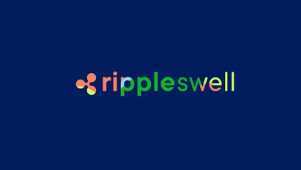While some of the themes were consistent with insights from Ripple Swell 2023—regulation, Ripple’s product evolution—the crypto industry has seen a lot of change in the last year with crypto exchange-traded funds (ETFs), stablecoin growth, and tokenization of real-world assets. Read on to learn more about this year’s Ripple Swell.
1. Digital asset regulation remains top of mind
Blockchain innovation is flourishing in markets with clear digital asset regulation and, unfortunately, the lack of guidance in the US has stifled the nation’s crypto company growth.
While some progress has been made, including digital assets like XRP receiving regulatory clarity in the US, many Swell panelists agreed that regulatory uncertainty has historically been one of the biggest challenges facing the crypto industry.
But as the US election year comes to a close and the price of bitcoin soars to an unprecedented high, all eyes will be on the new administration and its impact on the crypto industry at large.
“Having a regulatory structure that will help separate the good from the bad, and the regulated from the cowboys or worse out there, is really something that we need,” remarked Sheila Bair, Former Chair of the FDIC and Founding Chair of the Systemic Risk Council, who took to the main stage with Monica Long, Ripple’s President.
Bair expressed confidence in crypto’s potential—particularly around real-world asset tokenization use cases, affordable remittances, and disintermediation—and urged the industry to provide transparency to regulators in order to improve public-private collaboration in digital asset innovation.
Through events like Swell, Ripple is helping set the tone for how crypto businesses can and should approach potential reluctance from traditional finance. Developing a practical roadmap to achieving the big-picture potential of blockchain is crucial to sustainable adoption.
2. Crypto ETFs and stablecoin growth signal confidence from TradFi
Despite historically heavy resistance to all things crypto from the Securities and Exchange Commission (SEC), the US agency approved spot bitcoin ETFs in 2024. Many Swell panelists acknowledged the significance of this move as TradFi finally recognizes rising demand for digital asset exposure from investors.
Stablecoins were also a key part of the conversation. This asset has had its share of the limelight this year as utility potential proves true and legacy finance turns to stablecoins as an entry point into the digital asset ecosystem.
Stablecoin payments is one of the major use cases where these assets shine by enabling fast, secure, low-cost global transactions. Just ahead of the conference, Ripple announced the advisory board for Ripple USD (RLUSD)—a stablecoin centered around transparency of reserves and regulatory compliance. Ripple plans to use RLUSD as well as XRP in its cross-border payments solution to enable streamlined global transactions for its institutional and enterprise customers.
The value that crypto can bring to the finance sector is becoming impossible to ignore. As panelist Hunter Horsley, CEO, Bitwise Asset Management, commented: “Crypto is arriving. It’s an unstoppable train, and I’m excited about that.”
3. Real-world use cases reign supreme
While consumer-focused crypto applications like NFT collectibles have historically driven adoption surges, early use cases should be viewed as a sign of the times, a rudimentary stage in the technology’s evolution.
Swell highlighted the ongoing shift from retail to institutional interest in crypto, as trends fade into the background and real-world use cases move toward the mainstream.
Société Générale-Forge, for example, has used blockchain technology to give clients the option to settle securities onchain via their stablecoin. By leveraging a bank-grade digital asset custody solution to manage their stablecoins from issuance to completion of settlement, SG-FORGE can offer their clients streamlined services while maintaining the level of trust and security expected from a financial institution.
“There’s so many different use cases. Like the Internet doesn’t have one internet company. There’s dozens of really important, big companies. And so there will be quite a few very important blockchains,” remarked Dan Morehead, CEO of Pantera Capital, during his conversation with Ripple CEO Brad Garlinghouse.
Tokenization of real-world assets (RWAs) and cross-border payments were two widely discussed use cases, both pillars of Ripple’s 2025 product roadmap.
Aaron Slettehaugh, Ripple’s SVP Product, shared more details on the roadmap with Swell attendees, including an overarching effort to bridge TradFi and DeFi ecosystems. Slettehaugh recognized the symbiotic relationship between these two spaces, and the need for a trusted, reliable provider like Ripple to offer a one-stop shop for digital asset infrastructure.
Ripple’s suite of products has evolved alongside the changing crypto industry, particularly as the benefits of blockchain expand to traditional financial services. With a robust global payments network, institutional digital asset custody software, and RLUSD, Ripple is well positioned to play a pivotal role in the future of finance.
4. Crypto’s philanthropy angle
Legacy institutions’ growing confidence in crypto has generated excitement from proponents of the technology, but decentralization as a foundational principle of blockchain is somewhat at odds with centralized initiatives like crypto ETFs.
This irony was not lost on Swell panelist Maja Vujinovic, CEO, OGroup, who instead pivoted to drive home the critical role that DeFi can play in expanding access to basic financial services: “There are people out there who would love to have this financial instrument…To provide that to folks is really important.”
Numerous panelists touched on the value that crypto can bring to financial inclusion efforts. The widespread availability of smartphones and internet access can open the doors for crypto-enabled mobile payments and crypto donations, making delivery of financial assistance more efficient.
David Miliband, President and CEO, International Rescue Committee (IRC), underscored the value that crypto can bring to humanitarian efforts during a conversation with Eric van Miltenburg, SVP Strategic Initiatives, Ripple.
Miltenburg commented, “The ability to have impact and address some of the challenges that prevent people from being part of the global economy was at the core of what motivated [Chris Larsen, Ripple co-founder and Executive Chairman] to tackle these problems.”
While progress with any new technology is subject to a long road with unexpected twists and turns, it’s important for industry leaders to maintain focus. For Ripple, that means building the Internet of Value and unlocking greater economic opportunity for everyone, everywhere.
Watch additional footage from Ripple Swell 2024 













 All while Pfizer—a company with a $2.3 billion criminal fine for fraudulent marketing, bribery, and kickbacks—was given blanket immunity from liability and billions in taxpayer dollars to produce a vaccine in record time with no long-term safety data.
All while Pfizer—a company with a $2.3 billion criminal fine for fraudulent marketing, bribery, and kickbacks—was given blanket immunity from liability and billions in taxpayer dollars to produce a vaccine in record time with no long-term safety data.
























